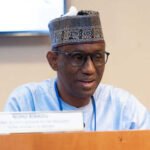The World Health Organisation (WHO) recently sent out a warning to countries across the world to be prepared for a virus even deadlier than Covid-19.
Development Diaries reports that the Director General of WHO, Tedros Adhanom Ghebreyesus, made this disclosure while addressing the World Health Assembly forum in Geneva, Switzerland, during the week.
Ghebreyesus said that the threat of another public health crisis could not be kicked ‘down the road’, adding that the threat of another pathogen emerging with even deadlier potential remains.
‘The threat of another variant emerging that causes new surges of disease and death remains’, Ghebreyesus warned.
He asserted that even though the worst of the Covid-19 pandemic had passed into history, a Covid variation with the capability of starting the world over again could yet exist.
‘We cannot kick this “can” down the road. When the next pandemic comes knocking, and it will, we must be ready to answer decisively, collectively and equitably’, he added.
It is however interesting to note that neither the Ministry of Health in Nigeria nor the country’s National Centre for Disease Control (NCDC) has responded to this information from the WHO.
There has not been any assurance given to citizens that Nigeria is ready to work towards ensuring that another pandemic does not meet a collapsed health system.
A visit to the health ministry’s official Twitter page showed that the last tweet from the ministry was made on 24 February, 2022. Also, there is no update on the ministry’s website.
Why is there a loud silence?
An analysis of the financing of Nigeria’s health‐care system in response to Covid019 by the National Library of Medicine shows that the funds which were received from donors were spent temporarily on public health and clinical care measures, with little invested to strengthen the health system beyond the pandemic.
Nigeria’s response to disease outbreaks was rated poorly by the 2019 Global Health Security Index and the WHO’s Joint External Evaluation of International Health Regulations core capacities.
The country’s inadequate health system, which is a result of low government spending on health, delays in government responses to the virus, low rates of Covid-19 testing, and a lack of transparency and accountability, hindered its response to the pandemic.
Furthermore, Nigeria’s health surveillance system and contact tracing may be effective for dealing with small pockets of outbreaks but is less effective for dealing with a disease of a magnitude as large as that of Covid‐19.
It is in the best interest of Nigeria to swing into action and begin setting in place strategies to strengthen its health systems.
Development Diaries calls on the Ministry of Health and the NCDC to communicate to Nigerians on what line of action they plan to take based on the WHO warning.
Photo source: WHO




